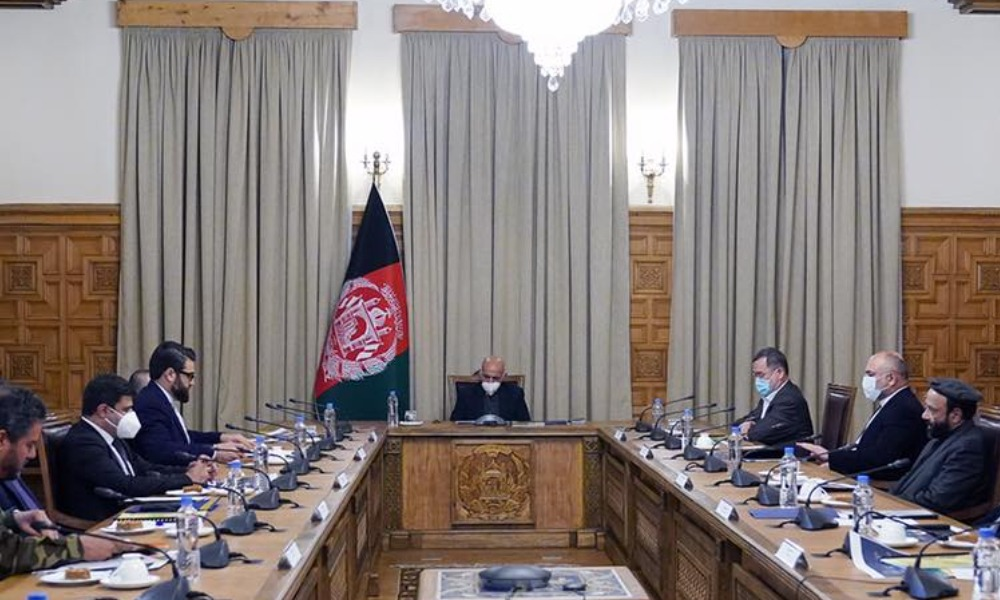Ghani discusses security and border control plans at NSC meeting

President Ashraf Ghani said Sunday that peace and stability in Afghanistan will bring peace and stability to the region.
Speaking at a National Security Council meeting Ghani said: “Peace will allow for major economic projects for the economic prosperity and economic development of Afghanistan and the region as soon as possible.”
The President stated that Afghanistan’s vision as a nation-state is to expand regional cooperation, trade, transit and the implementation of major economic projects.
Ghani said the Afghan government is trying to share its economic vision with Pakistan and Central Asian countries and other neighbors.
Referring to the opening of the Khaf-Herat railway line, the President reiterated the importance of regional connectivity, and added that without a clear framework for regional cooperation for peace and stability in Afghanistan, challenges would remain in the region.
“Peace, stability, regional cooperation and development are important issues for the countries of the region, and that a regional consensus will help strengthen it,” Ghani stressed.
Afterward, the Deputy Minister of Defense addressed the meeting and presented a report on the adoption of a new approach to border management and security, saying that the border forces, which previously operated under the Ministry of Interior, have now been transferred to the Ministry of Defense.
In terms of equipment and training, “the ANA has specific programs in place for them [border forces],” he said.
Ghani approved the Ministry of Defense’s plan to reorganize and position border forces in order to better control the borders.
At the end of the meeting, it was noted that the use of new technology across the border will prevent the movement of smugglers and terrorists. During the meeting emphasis was also placed on active
diplomacy with neighbors in the fight against drug traffickers and terrorists.
The implementation of the Afghanistan-Pakistan Cooperation Action Plan (APAPPS) and the adoption of a new approach to border management and security were also discussed.
